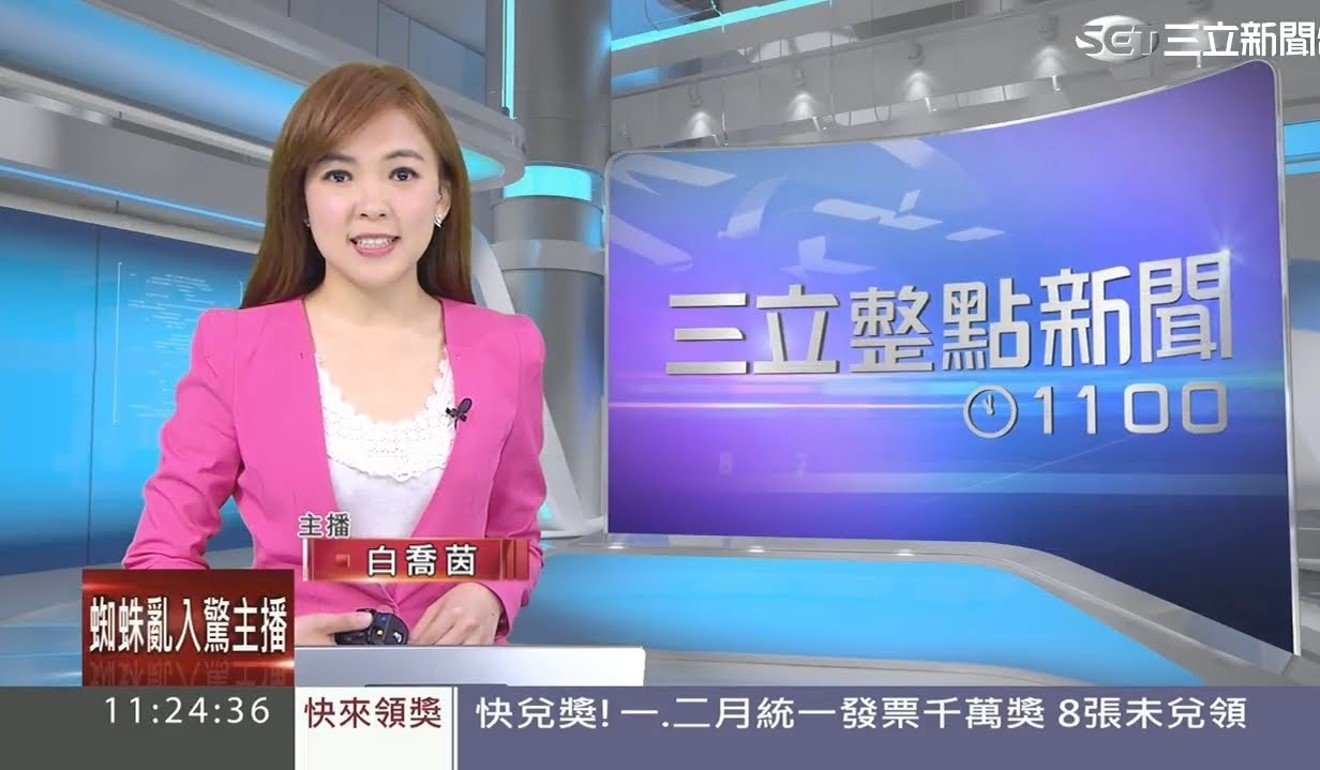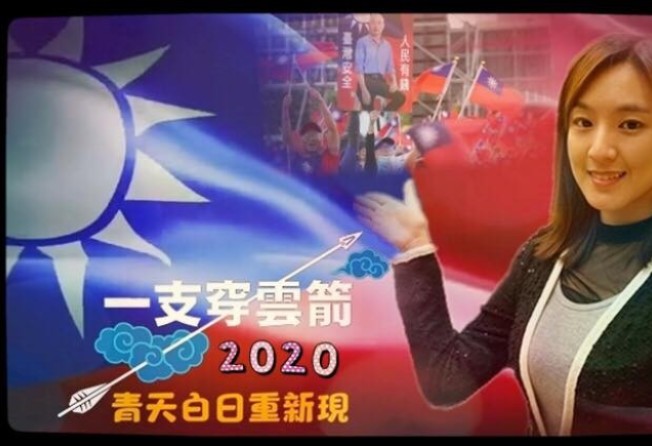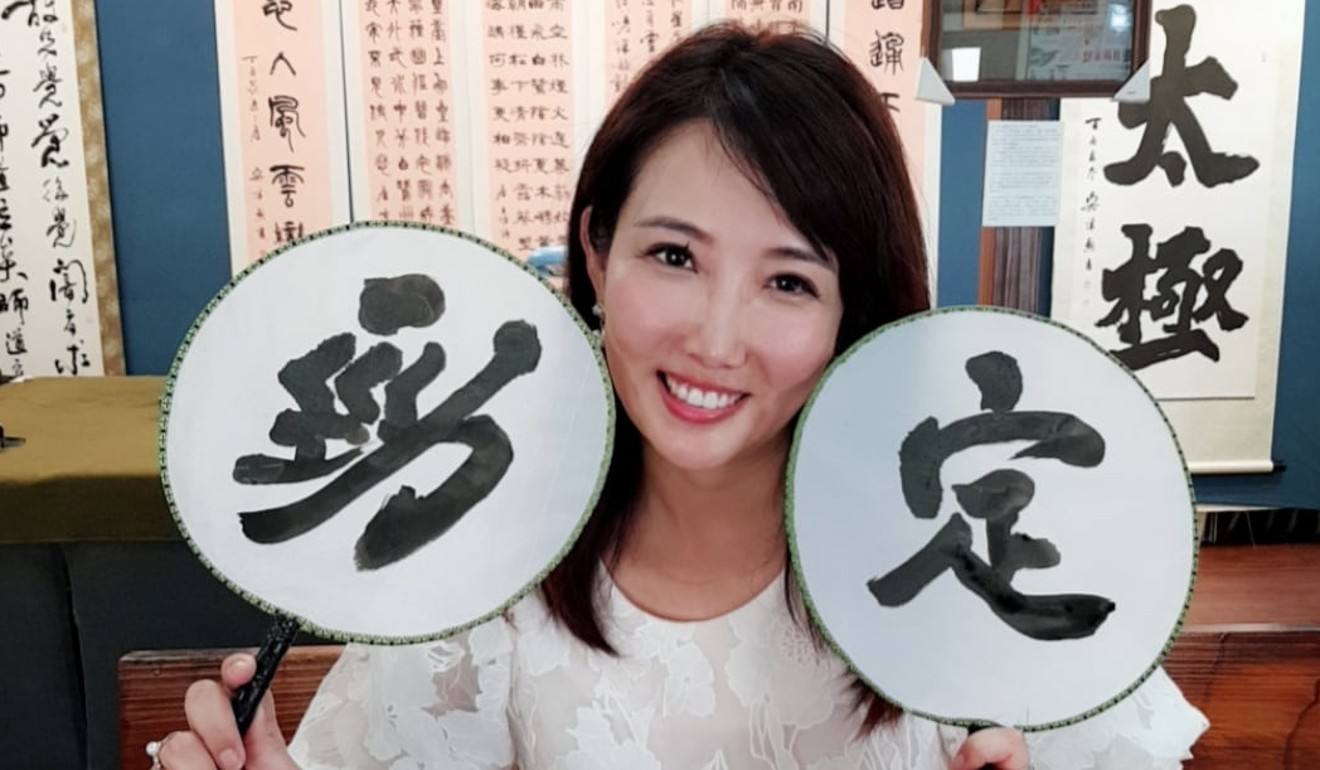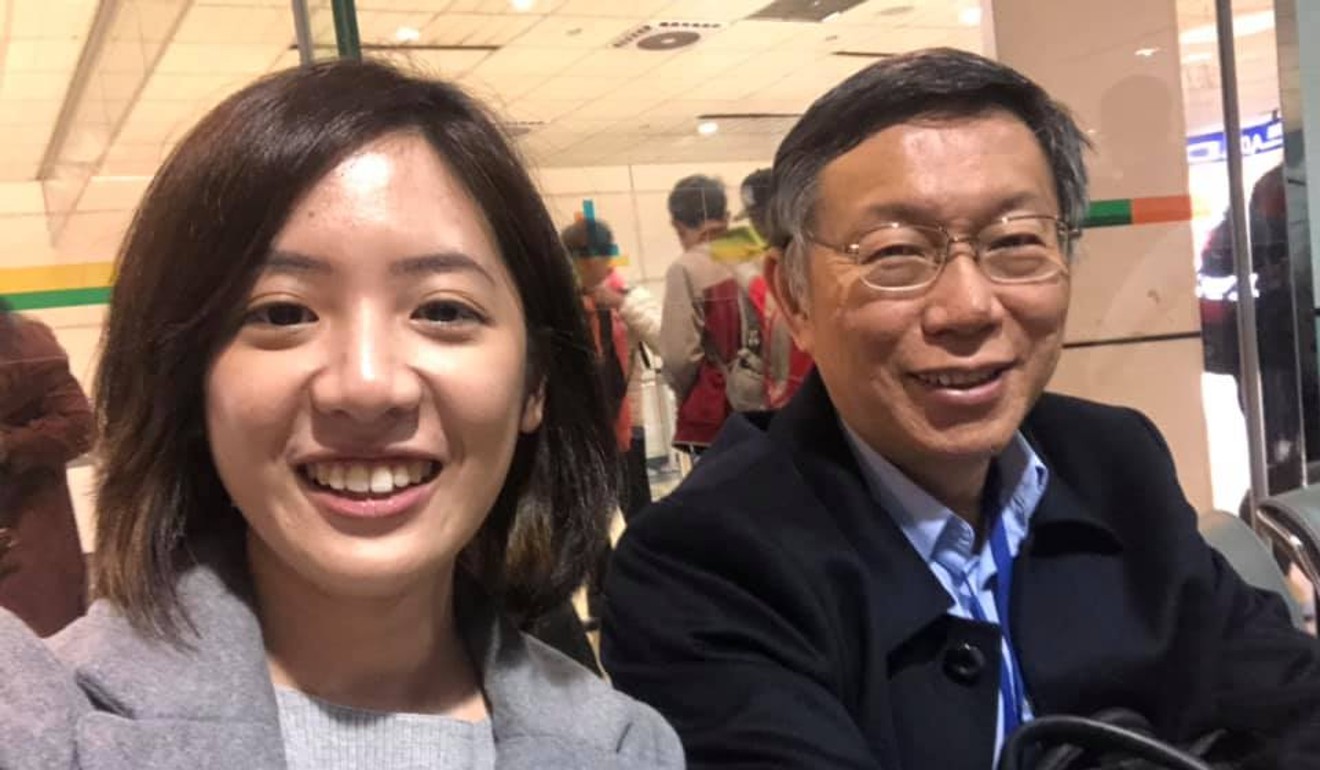
TV news women key to Taiwan presidential hopefuls’ ‘beauty card’ strategy
- Combination of looks and expertise is attracting politicians to hire anchorwomen but is it sexist?

Taiwan’s female television news anchors are the aces in the pack for politicians running in January’s presidential polls in a strategy which has been dubbed “playing the beauty card”.
The candidates aiming to oust incumbent President Tsai Ing-wen are signing up female anchors as spokeswomen or campaign managers in a move analysts say is aimed at presenting a softer image, but which rights groups have condemned as insulting to women.
Taiwan Television’s Joyce Ho quit late last month to become campaign spokeswoman for Kaohsiung mayor Han Kuo-yu, the opposition Kuomintang (KMT) party’s nominated candidate. Han wasted no time in recruiting Ho, after winning the nomination on July 19, and she started working for him on August 1.
Han is well aware of how powerful the “beauty card” can be, following his 23-year-old daughter Han Bing’s role in the former KMT outcast’s unlikely victory in last year’s local elections.
Han Bing, a part-time model known to many of her fans as “beauty with brains”, built a huge island-wide social media network in support of her father which was widely credited with winning him the traditional stronghold of Tsai’s independence-leaning Democratic Progressive Party.
The transition from news to politics has been a natural one for Ho, who has taken over management of the campaign’s social media groups, dealing with questions and comments from the public that can range from slurs to admiration.
“I like challenging work, plus I used to cover political events quite often. By accepting this job I can use a new angle to look at the presidential campaign,” Ho said.
“Often, before we have finished tackling one issue, another one pops up, and the most challenging is we have to deal with all these issues with a clear state of mind and head off even very minor things that might create harm,” she said.
In addition to Ho, Han recruited another former anchorwoman, Pai Chiao-yin, to help his Kaohsiung city government information chief Annie Wang, herself a former anchorwoman, keep the public informed and promote his latest administrative achievements.

“My job is to make people feel Kaohsiung is a good place to live and to promote the city as much as possible,” Pai said.
The appeal of the female news anchors lies not only in their highly presentable appearance but also in their familiarity with politics and Taiwan’s fiercely fought election campaigns.
Han will be hoping Ho’s skills can help to repair the serious political fault line he created with his decision to run for president barely six months after his mayoral victory. It is not only the residents of Kaohsiung who are unhappy at his switch to presidential politics before serving a full year as mayor. Other voters have also questioned his integrity, after he broke a previous promise to stay put if elected.
Foxconn billionaire Terry Gou is keeping his own presidential ambitions alive with the recruitment of another “beauty with brains” news anchor as his deputy spokeswoman.

Gou bowed out of the KMT primaries in July after coming second to Han, but has kept local media guessing whether he intends to run as an independent or join another political party. Immediately after the primary, Gou went overseas in a move some observers said was intended to avoid meeting Han and also keep tensions alive within the party.
Local news reports have suggested Gou might team up with Taipei Mayor Ko Wen-je and former legislature speaker Wang Jin-pyng to compete with Han in a challenge to Tsai.
Ko, who recently formed the Taiwan People’s Party, is the originator of Taiwan’s political “beauty card strategy”. It was his deputy spokeswoman, former reporter Huang Ching-yin, who was widely credited with helping him secure a second term in 2018.
Known in Taiwan as “the girl next door,” the 27-year-old’s sweet smile and logical approach has won wide support among the island’s online community. In a typical exchange on a television talk show in March, Huang dismissed the question of unification with the mainland as a fake issue.

“Taiwan will not become independent or reunite with the mainland immediately after I cast the ballot, and why such a heated argument during the elections?” she said.
Local media have questioned whether Ko will join the “beauty card” race by recruiting a female anchor to serve as his office’s spokeswoman but he has said he is yet to make any final decision.
Analysts said the recruitment of beautiful and intelligent television news women helped neutralise the unruly image of ferocity, aggression and harshness of Taiwan’s political scene. Voters are also more likely to be enchanted by them, although looks alone were not enough.
“They tend to catch people’s eyes and can easily lead others, social media network people in particular, to wide discussion of a topic they want to raise,” said Niu Tse-hsun, a professor of advertising at Chinese Culture University in Taipei.
“To do this, beautiful looks alone are not enough. They must know the issues well enough and must speak with logic, analysis and reason while keeping the topic interesting. Most importantly, they must be able to deal with crises instantly and effectively,” Niu said.
Chi Hui-jung, executive director of the Garden of Hope Foundation in Taipei, said the women should be treated fairly and judged in terms of their abilities instead of their looks, like their male peers.
“Reducing women to their physical attributes is unacceptable and the so-called beauty with brains is even highly insulting,” she said.